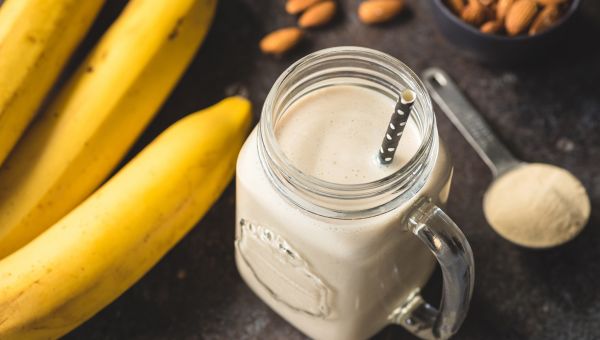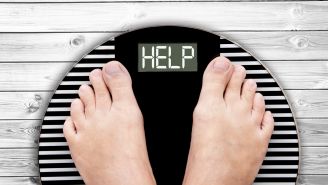Working out and not losing weight? Here's 5 reasons why
Breakthrough your weight loss plateau with expert-approved tips.

The recipe for weight loss seems simple—a healthy diet and regular exercise—but that’s often easier said than done.
“As a bariatric surgeon, we always encourage our patients to actively participate in and obtain a healthy lifestyle, which includes both healthy eating and exercise,” says Tanyaradzwa Kajese, MD, a bariatric surgeon with Menorah Medical Center in Overland… Show More
The recipe for weight loss seems simple—a healthy diet and regular exercise—but that’s often easier said than done.
“As a bariatric surgeon, we always encourage our patients to actively participate in and obtain a healthy lifestyle, which includes both healthy eating and exercise,” says Tanyaradzwa Kajese, MD, a bariatric surgeon with Menorah Medical Center in Overland Park, Kansas.
It's possible to hit the gym and (mostly) pay attention to your diet, yet still not lose weight. If you find yourself stuck on a scale that won't seem to budge, one of these five culprits may be to blame.
Show Less

You’re overeating healthy foods
The foundation for weight loss should be built on a healthy diet, full of fruits and vegetables, lean proteins, whole grains and healthy fats, but there are limits. If you're overdoing calories, even with healthy foods, you’re not going to lose weight.
Exercise can up your appetite, “so, it’s very… Show More
The foundation for weight loss should be built on a healthy diet, full of fruits and vegetables, lean proteins, whole grains and healthy fats, but there are limits. If you're overdoing calories, even with healthy foods, you’re not going to lose weight.
Exercise can up your appetite, “so, it’s very important when you start to increase your exercise, you're cautious about how much and what types of food you're eating,” Kajese says.
Eating a 300-calorie candy bar is not as healthy as eating a salad with the same number of calories, but when it comes to weight loss, what matters most is the number of calories you take in versus the number you burn, she says. Your body's caloric needs depend on your age, gender and activity level, and are best determined by your healthcare provider.
Show Less
You don’t do enough cardio
Some workouts are better suited for weight loss. “When you're looking to lose weight, cardiovascular exercise is typically going to be more effective,” Kajese says. In short, cardio is anything that gets your heart rate up. Think: walking, running, cycling and swimming.
There’s good news for those… Show More
Some workouts are better suited for weight loss. “When you're looking to lose weight, cardiovascular exercise is typically going to be more effective,” Kajese says. In short, cardio is anything that gets your heart rate up. Think: walking, running, cycling and swimming.
There’s good news for those pressed for time, but looking to lose pounds. Frequent, short bursts of higher intensity cardio are likely better for weight loss than longer workouts at a lower intensity. “I always recommend trying to do 30 minutes of cardiovascular exercise five to six days a week,” Kajese says.
Show Less
You’re sabotaging your calorie burn
Spending time at the gym is something you should be proud of, but it’s not something to be rewarded with a nightly bowl of ice cream. “Often, when people begin a new exercise regimen, they're very proud of it—but eating the calories that you burned off can sabotage your efforts,” Kajese says.
What’… Show More
Spending time at the gym is something you should be proud of, but it’s not something to be rewarded with a nightly bowl of ice cream. “Often, when people begin a new exercise regimen, they're very proud of it—but eating the calories that you burned off can sabotage your efforts,” Kajese says.
What’s worse? We tend to overestimate the amount of calories we burn during a workout, so it’s possible our rewards have even more calories than we actually expended.
The pursuit of losing weight mustn’t lack sweet treats. Simply make healthy choices to satiate cravings, like an ounce of dark chocolate or a frozen and blended banana in place of a bowl of ice cream—you can even mix in a tablespoon of unsweetened cocoa powder.
Show Less
You’ve gained muscle
“A lot of weight training tends to build muscle, which can be good,” Kajese says. Weight lifting changes the composition of your body by increasing lean muscle and decreasing fat. But sometimes those who utilize weights or resistance training notice that the number on the scale doesn't drop, or may… Show More
“A lot of weight training tends to build muscle, which can be good,” Kajese says. Weight lifting changes the composition of your body by increasing lean muscle and decreasing fat. But sometimes those who utilize weights or resistance training notice that the number on the scale doesn't drop, or may even go up, she adds.
Muscle is denser than fat, so it’s possible to slim down without losing weight—if you’re gaining muscle. This may be discouraging, however, to those looking for a downtick in the number on the scale. A surefire way to distinguish whether you’re carrying muscle or fat? Take your measurements regularly. If your waistline is whittling, but the numbers on the scale continue to rise, muscle may be why.
Show Less
Your focus is on the gym
Regular exercise should be part of a healthy lifestyle, and can reduce your risk of heart disease, strengthen your bones, improve your mood and help control your weight. More crucial to successful weight loss, however, is a healthy diet. “I actually think that weight loss is probably affected more… Show More
Regular exercise should be part of a healthy lifestyle, and can reduce your risk of heart disease, strengthen your bones, improve your mood and help control your weight. More crucial to successful weight loss, however, is a healthy diet. “I actually think that weight loss is probably affected more by diet than exercise,” Kajese says.
Exercise and eating are not mutually exclusive. In fact, food is important to physical performance. Without the necessary carbohydrates, protein, vitamins and fluids, your body can’t perform as well during exercise. It’s important to take your mind off the treadmill long enough to focus on fueling your body with the right foods for weight loss—ingredients that are low in calories and high in essential nutrients.
“To lose weight and keep that weight off, people really have to make the lifestyle modifications to eat right and exercise regularly,” Kajese concludes.
Show LessMore On


video

article

slideshow


video


video
